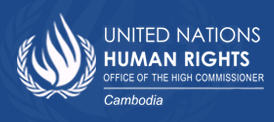The rights of indigenous peoples

The
United Nations Declaration on the Rights of Indigenous Peoples was adopted by the General Assembly on 13 September 2007. The Declaration affirms the basic rights of indigenous peoples in a number of areas of special concern under the framework of the general principle or right to self-determination, including the right to equality and non-discrimination; the right to cultural integrity; the rights over lands, territories, and natural resources; the right to self-government and autonomy; the right to free, prior, and informed consent, and others.
The Special Rapporteur on indigenous peoples has done a number of reports specifically related to land, including on the impacts of development projects on indigenous communities. More information can be found
here.
On the promotion of indigenous peoples’ land rights, OHCHR works closely with the Ministry of Rural Development, the Ministry of Interior and the Ministry of Land Management and Urban Planning. The process for applying for communal land titles is complex, expensive and slow and thus inaccessible for most indigenous communities. In collaboration with ILO and other development partners, it monitors and supports efforts nationwide by indigenous peoples to organize themselves and obtain their recognition as indigenous peoples communities, as legal entities, and to apply for collective land titles, as set out in domestic law.
For instance, since 2011, OHCHR provided financial and technical support to three communities of Suoy indigenous peoples in Aoral district (Kampong Speu province), one Por community in Samlot district (Battambang province) and seven Phnong villages in Bousra commune (Mondulkiri province). OHCHR, with relevant stakeholders, has also actively engaged in other activities for the promotion of the indigenous peoples’ land rights.
In 2016 and 2017, OHCHR assisted indigenous communities in Battambang, Koh Kong, Kratie, Mondulkiri and Stung Treng in the process of applying for Collective Land Title. In 2018, OHCHR is continuing with this project, assisting communities in acquiring recognition of their identity as indigenous communities (Stung Treng), and in being recognized as legal entities (Mondulkiri). This project is implemented in collaboration with the Ministry of Rural Development, the Ministry of Interior, the Ministry of Land Management, Urban Planning and Construction, the Provincial Halls, the provincial line departments of each relevant Ministry, and district and local authorities. The office has also been supporting multi-stakeholders discussions in Bousra to help the establishment of a dialogue between representatives from Phnong communities, local authorities, national and international NGOs and private companies operating in the area to solve existing land disputes. The Office has also been providing training on the rights of Indigenous Peoples and on the Collective Land Titling process to provincial and local officials in several provinces.
See our
Manual on Indigenous Land Titling in Cambodia
See our report
Assessment of the Credit Opportunities for Indigenous Communities in Cambodia Holding a Collective Land Title
Watch our video
A step forward – On Cambodia’s process of indigenous identity recognition.

 The United Nations Declaration on the Rights of Indigenous Peoples was adopted by the General Assembly on 13 September 2007. The Declaration affirms the basic rights of indigenous peoples in a number of areas of special concern under the framework of the general principle or right to self-determination, including the right to equality and non-discrimination; the right to cultural integrity; the rights over lands, territories, and natural resources; the right to self-government and autonomy; the right to free, prior, and informed consent, and others.
The United Nations Declaration on the Rights of Indigenous Peoples was adopted by the General Assembly on 13 September 2007. The Declaration affirms the basic rights of indigenous peoples in a number of areas of special concern under the framework of the general principle or right to self-determination, including the right to equality and non-discrimination; the right to cultural integrity; the rights over lands, territories, and natural resources; the right to self-government and autonomy; the right to free, prior, and informed consent, and others.